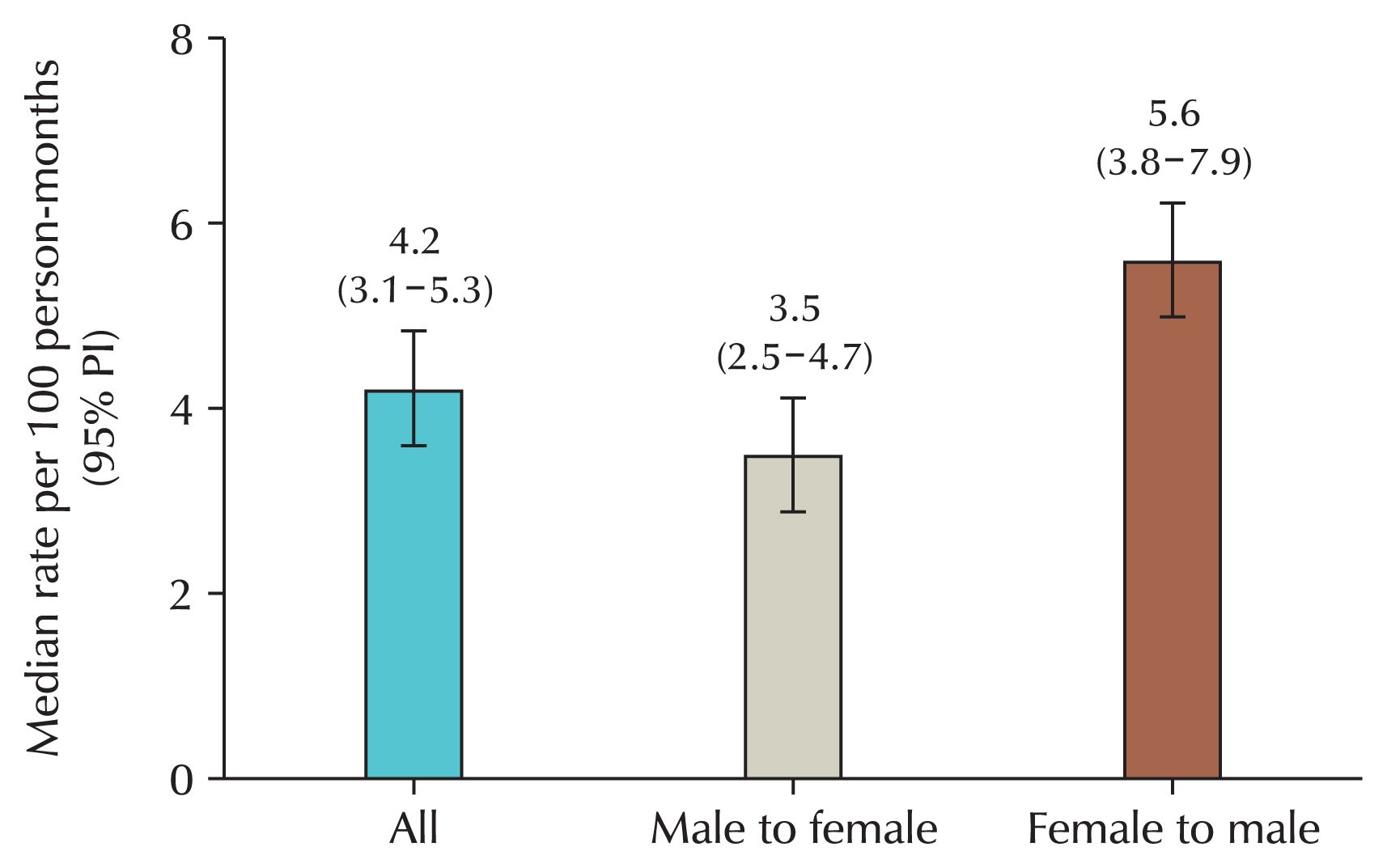-
The Necessity of Human Papillomavirus Vaccination in Men: A Narrative Review
-
Sooyoun Kim, Sangrak Bae
-
Urogenit Tract Infect 2024;19(3):51-59. Published online December 31, 2024
-
DOI: https://doi.org/10.14777/uti.2448030015
-
-
 Abstract Abstract
 PDF PDF PubReader PubReader ePub ePub
- Anogenital wart caused by human papillomavirus (HPV) is the most common sexually transmitted infection. High-risk strains, such as types 16 and 18, cause penile cancer in men, cervical and vulvar cancers in women, and head and neck cancers and anal cancer in both sexes. Since these malignant tumors can be prevented through vaccination, the importance of vaccination is emphasized. However, because HPV is known to cause cervical cancer, vaccination is only being administered to women. Some countries vaccinate men as well, but in South Korea, only girls are included in the National Immunization Program. However, screening for HPV in men is not possible, and the virus causes various malignant tumors, with a sharp increase in head and neck cancers, as well as a surge in genital warts in the country. In addition, HPV worsens sperm quality. Moreover, the need for vaccines is increasing as the known methods for preventing HPV-related diseases in men are decreasing and the disease burden is increasing. As cost-effectiveness studies have shown that the cost-effectiveness of vaccination is lower for men than for women, it is unlikely that male vaccination will be included in national immunization programs. Many countries overseas, especially a very small number of OECD (Organization for Economic Cooperation and Development) countries including South Korea, are implementing mandatory vaccination for women. Vaccinating men and women, would be cost-effective and efficient in achieving herd immunity. In addition to herd immunity, the inclusion of male vaccination in the National Immunization Program is imperative given the rapidly increasing incidence of diseases in men.
-
Citations
Citations to this article as recorded by  - Prevalence of sexually transmitted infections among persons aged 15–24 in Republic of Korea: A retrospective population-based descriptive study
Jinhee Seo, Minji Han, Sangrak Bae, Sooyoun Kim
Investigative and Clinical Urology.2026;[Epub] CrossRef - Human Papillomavirus Infection and Vaccine Uptake Among Males in the United Arab Emirates and the Wider Middle East and North Africa Region: A Narrative Review
Humaid AlKaabi, Raya Abu-Khalaf, Sandra Abu-Khalaf, Layan Abu-Khalaf, Yahia Khalil
Cureus.2025;[Epub] CrossRef
-
11,392
View
-
114
Download
-
2
Crossref
-
What Are the Barriers to Human Papillomavirus Vaccination for Male in South Korea?
-
Sangrak Bae, Sooyoun Kim
-
Urogenit Tract Infect 2022;17(3):53-60. Published online December 31, 2022
-
DOI: https://doi.org/10.14777/uti.2022.17.3.53
-
-
 Abstract Abstract
 PDF PDF PubReader PubReader ePub ePub
- The human papillomavirus (HPV) virus causes genital warts, a sexually transmitted disease, as well as cervical and vulvar cancer in females and penile cancer in males. In addition, it this virus causes various diseases, including head and neck cancer and anal cancer. Vaccines can prevent malignant tumors caused by the HPV virus, and various projects are being conducted to eradicate HPV worldwide. The national inoculation program is a representative project among them. In Korea, only females are vaccinated; males are not included in the national mandatory vaccination list. Various reasons preventing HPV vaccination for males include cost-effectiveness, fear and misperception of side effects after vaccination, problems with the effectiveness of vaccination, and lack of social awareness about the need for vaccination, including parents, and the lack of research on male HPV disease. As female’s right to health is emphasized, HPV disease, which has become more important in treatment, will never be cured if it is managed only for females. Because the disease is transmitted sexually, managing and controlling HPV in males is also essential. In that sense, males must also be included as nationally required vaccination targets.
|






